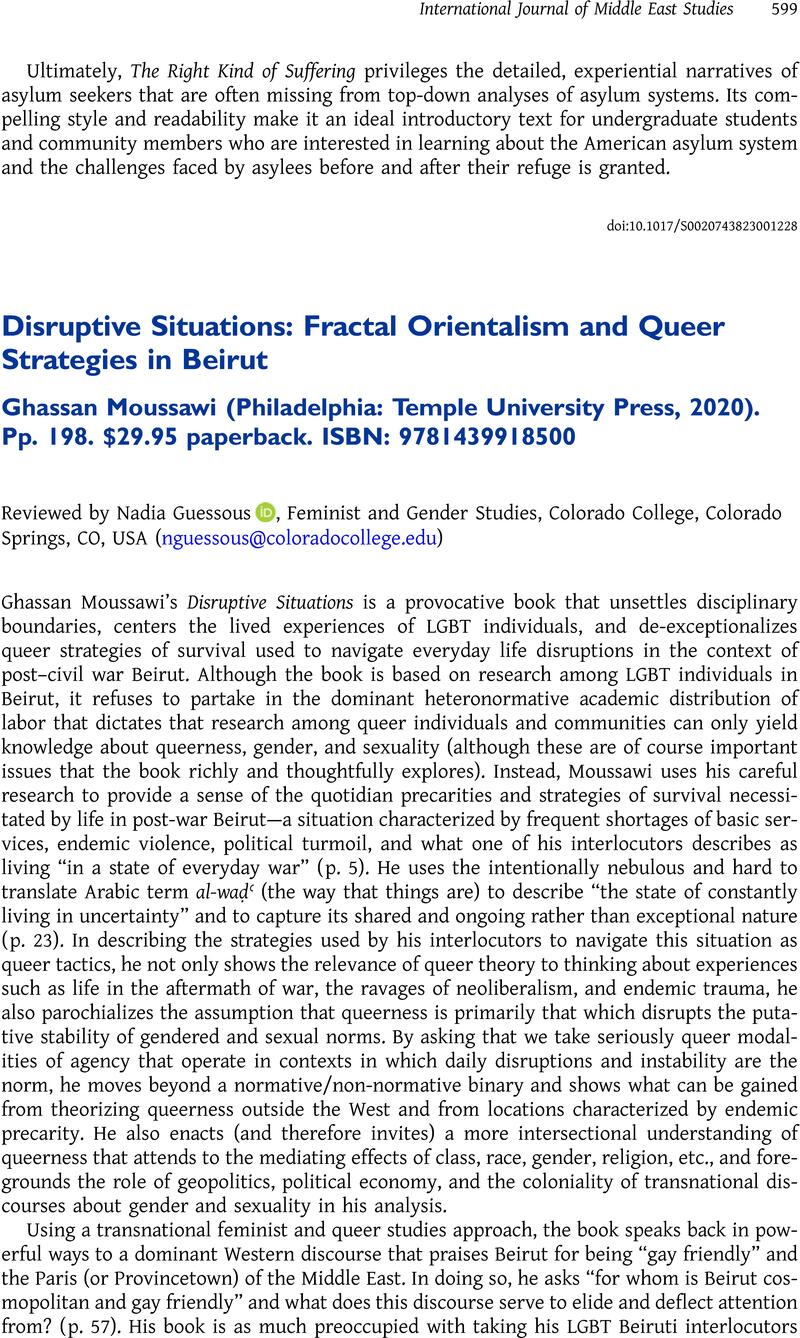No CrossRef data available.
Article contents
Disruptive Situations: Fractal Orientalism and Queer Strategies in Beirut Ghassan Moussawi (Philadelphia: Temple University Press, 2020). Pp. 198. $29.95 paperback. ISBN: 9781439918500
Review products
Disruptive Situations: Fractal Orientalism and Queer Strategies in Beirut Ghassan Moussawi (Philadelphia: Temple University Press, 2020). Pp. 198. $29.95 paperback. ISBN: 9781439918500
Published online by Cambridge University Press: 21 September 2023
Abstract
An abstract is not available for this content so a preview has been provided. Please use the Get access link above for information on how to access this content.

- Type
- Book Review
- Information
- Copyright
- Copyright © The Author(s), 2023. Published by Cambridge University Press



